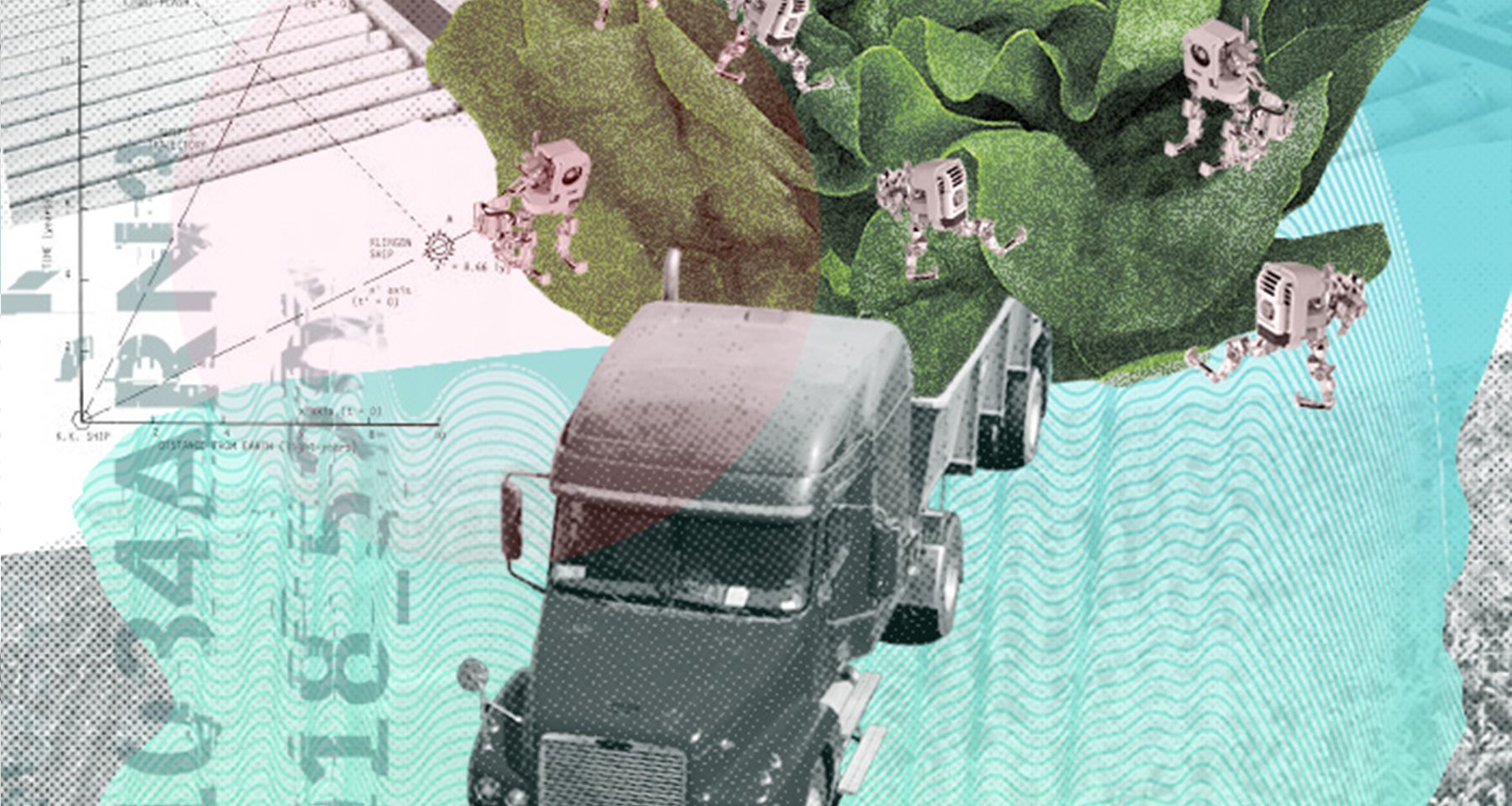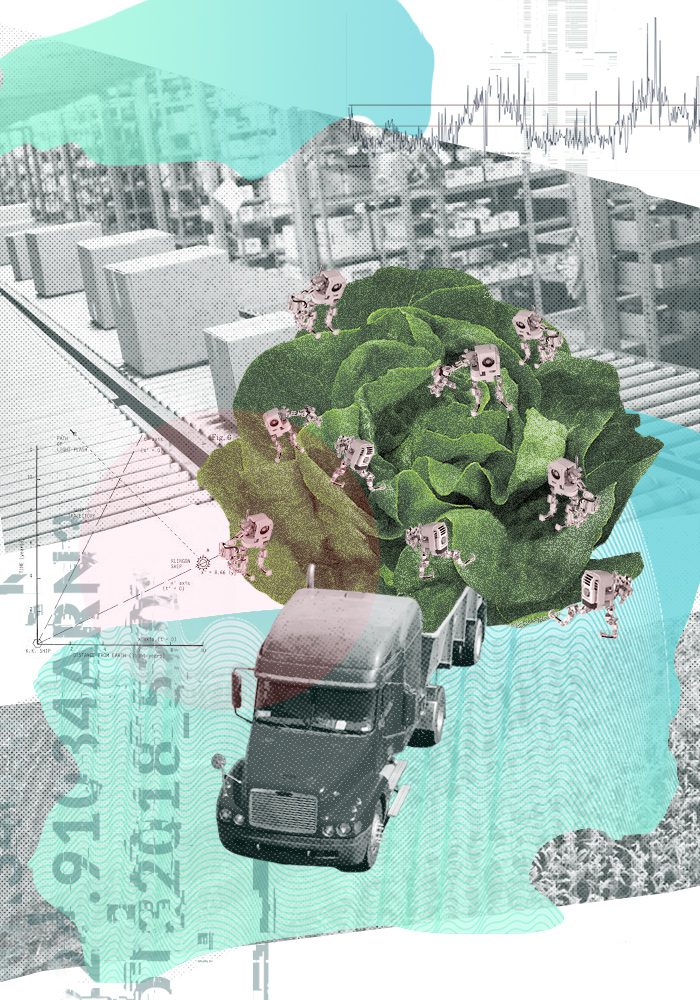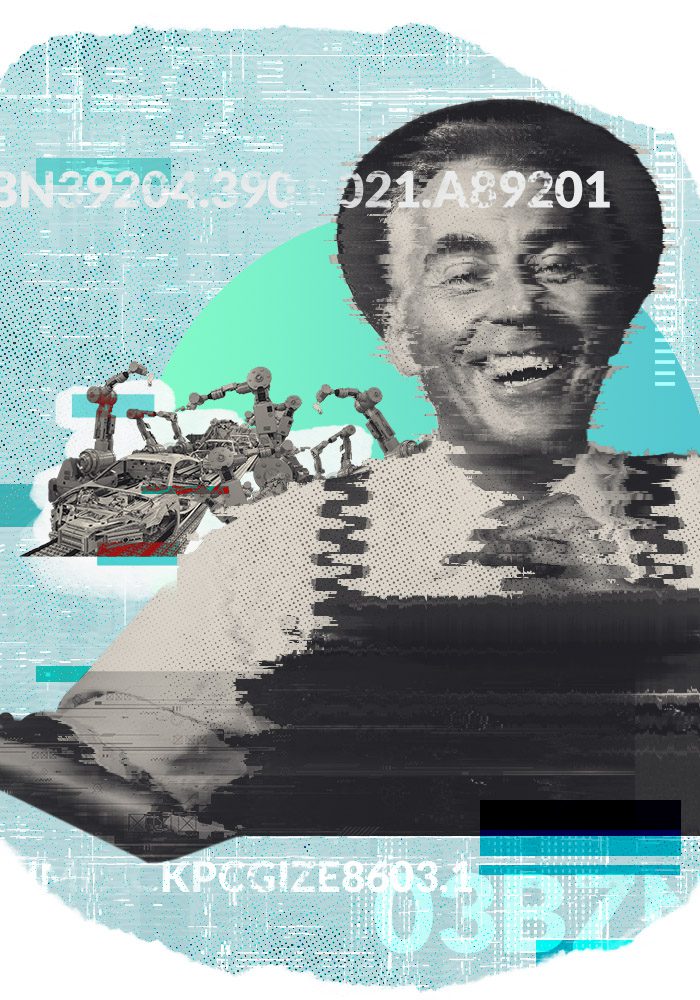The Robot Rat Race: How Technology is Changing Jobs, and What That Means For Society

The robot revolution is coming.
Do you think artificial intelligence will create more jobs than it destroys?

Nearly 2 million people make a living driving trucks in the United States.
It’s not an easy life. Truckers work long hours, and often spend days or weeks at a time on the road away from their families. Obesity and other health problems, like diabetes, are rife. Still, trucking is a good way for someone in America without a college degree to earn a decent wage. So what happens in another few years when driverless trucks start to take the place of human drivers at the wheel? Read below to find out more.
How Will Automation Change Our Future?

We’re used to thinking about robots on the assembly line. Carmakers have been using them to replace human labor for more than 60 years. But the robot revolution is spreading. Millions of US truckers aren’t the only people whose jobs are in the crosshairs.
There’s a decent chance that salad you’re eating contains lettuce picked in California using a machine that can harvest twice as many plants using half the labor of traditional methods. That child’s toy you just ordered online will be shipped from a warehouse where robots and human beings work together with ruthless efficiency. The self-checkout kiosks that have become ubiquitous in grocery stores aren’t robots, exactly. But they automate a task that store workers used to perform. Next time you go to the doctor, your tests could be reviewed by a computer. Legal problems? The paralegal at the law offices you consult might not be a human being any more.
The industrial revolution in the 18th and 19th centuries led to the widespread replacement of human (and animal) labor with machines. But it didn’t lead to mass-unemployment. It created new jobs for people to do. Farm hands who were put out of work by machines migrated to cities and worked in factories.
Technology has always replaced old jobs with new ones.
Some experts fear the next wave technological disruption will be different. Over the next decade or so, rapid advances in computing power and artificial intelligence will dramatically expand the number and types of tasks that machines can do better than human workers. As computers get better at skills that require problems solving and intuition, robots won’t just replace human muscle – they’ll replace human brainpower. Think: computers that analyze CAT scans better than human doctors; virtual accountants that can do your taxes in a fraction of the time – and at a fraction of the cost – of a human CPA; kiosks at retail shops that will do everything from taking your measurements, to sewing your garments, to remotely sensing what’s in your shopping cart to ring you up at checkout.
These technologies are just over the horizon. But they’ve already prompted a wave of speculation about future of work. One influential study from Oxford University estimated that a AI-driven automation could destroy nearly half of all US jobs over the next couple of decades. Another widely cited study suggested the figure could be closer to 14 percent of jobs in advanced economies. Other experts insist that far more jobs will be created by automation than destroyed.
The fact is that no one really knows. What is certain is that the rat race will never be the same. Even if automation creates more jobs than it destroys, they won’t be the same jobs, and not all workers will successfully make the transition to new types of work.
Here are some of the big questions that governments – and voters – need to ponder:
What new skills will workers need to thrive in the automation age?
Specialized skills may no longer guarantee steady employment, even in white-collar fields. More workers will need to acquire new skills continually over the course of their careers. That might mean more frequent career breaks to go back to school. Some workers will end up working alongside robots, while others will go into careers that we can scarcely imagine today.
Importantly, programmers and engineers won’t be the only jobs in demand. As robots take over a greater number of jobs that require rote work and data processing, the education system will also need to place greater emphasis on creativity, ethics, and more difficult-to-automate traits like empathy and the “human touch”.
How should the safety net adapt?
Even if technology ends up creating, in the aggregate, more jobs than it destroys, some workers displaced by automation will lack the skills or financial resources to successfully adapt to new jobs by themselves. Large numbers of people may end up unemployed for long periods, or drop out of the workforce altogether. That will be politically disruptive, particularly if the next wave of AI-fueled automation hits many industries at once. To avoid a backlash, governments will need to rethink key pieces of the safety net, like unemployment benefits, that were developed for an earlier age.
One of the more radical proposals would pay every citizen a minimum allowance, or “universal basic income” to cover essentials like food and housing to serve as a buffer against job market disruption and free more people to pursue work that might not necessarily pay the bills by itself. But even less ambitious proposals could still require big changes to how social programs are financed and administered. The huge amounts of money in play mean the process will be politically contentious.
Can people find new sources of meaning beyond work?
Imagine it’s the year 2030. The robot revolution has proceeded even faster than anyone thought. Millions of people either no longer work or work far fewer hours than before. But the economic gains from automation have also created new wealth, freeing up money to pay people enough to cover their basic needs. Even if this rosy scenario were to pan out, there would still be a problem: Along with family, work is a huge source of meaning for many people. Take it away, and it will create a vacuum.
The question is what ends up filling it: many people may find new sources of meaning, in volunteer work or creative pursuits. But others may lapse into idleness, despair, drug use, or even violence. How can societies, particularly poorer countries that are already struggling to provide meaningful opportunities for millions of young workers, encourage people to embrace the former and shun the latter? This is not a problem that any government will solve on its own. It will take a combination of local and national governments, the private sector and civil society – charities, social and religious organizations, and other institutions – to find an answer.
Videos
Further Reading
1. The Future of Employment: How Susceptible Are Jobs to Computerisation? .An influential study that estimated that 47 percent of US jobs were “at risk” from computer-driven automation over the coming decades. Other studies have estimated a lower impact.
2. Who Really Stands to Win from Universal Basic Income? A look at the historical background the current political debates of guaranteed income programs, which some advocates think could help cushion workers from job market disruptions.
3. How Automation Will Change Work, Purpose and Meaning – An essay on the promise and peril of a world where many people may no longer need to work to provide the basic necessities they need to survive.
This post is part of Digital Revolution: Technology, Power, & You. Funding for this project was generously provided by Harold J. Newman





